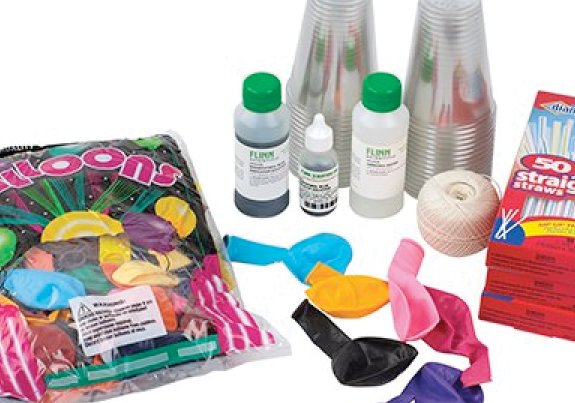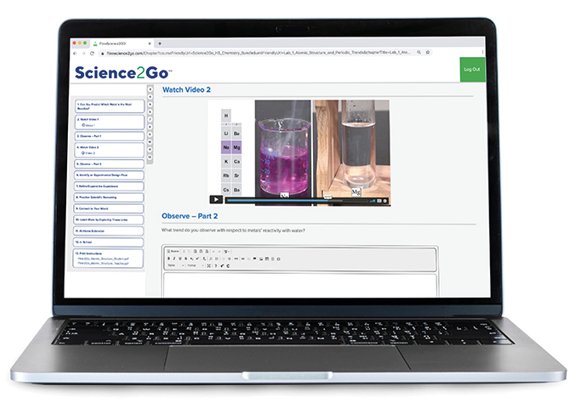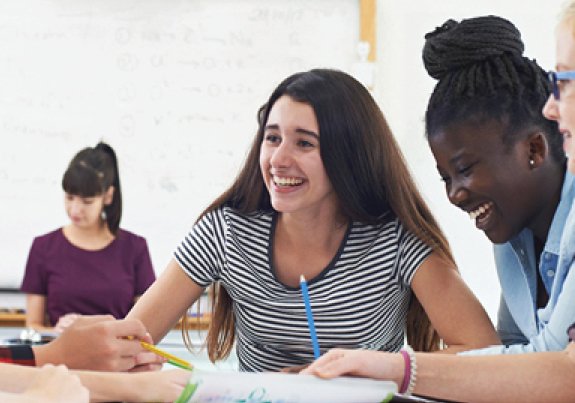
Thank You for your interest in PAVO, Flinn Scientific’s new, all-in-one science platform!
We hope you enjoyed our hands-on PAVO Demo. Let’s get started!
Learn about:
| Digital + Hands On Exercise, Carbon Dioxide and Resporation |
Digital Science2Go |
Digital + Activity Sheets POGIL Activity |
Your free kit can be used in many ways - by itself or with other great resources! We have set you up with access to Science2Go and a POGIL book, which can be assigned to, and accessed by, students in PAVO. We describe how you can use your free kit with those resources below to build a great experience for your students! Check your email for a welcome message that includes instructions on how to access your free activities:

Your laboratory kit gives students the hands-on opportunity to investigate the relationship between exercise and the amount of CO2 produced through respiration. The experiment integrates acidbase chemistry by using an indicator to show how the dissolution of CO2 into aqueous solutions lowers their pH values. You can have students follow the procedure that comes with the kit or have them design their own procedure to determine whether the amount of CO2 they exhale changes following periods of exertion relative to periods of rest. Ask your students to make predictions before doing the experiment and then compare their predictions to their results while justifying the similarities or differences. Ask students why it is important to control all other factors in order to draw conclusions about how exertion levels affect CO2 production in respiration.

Pair your kit with the Science2Go Respiration lab. Students can engage in a completely asynchronous activity that builds their scientific reasoning skills by exposing them to videos and threedimensional questions on respiration. Science2Go is a great way to introduce new topics and the activities are impactful on their own or as pre-laboratory preparation. You can track individual student progress in any activity from your PAVO dashboard.

POGIL (Process Oriented Guided Inquiry Learning) activities are done by groups of students with teacher facilitation. Students must make sense of models to ultimately understand new science topics including Cellular Respiration. These activities can be used along with laboratory activities to help students form deep, conceptual understandings.
Haven't watched the webinar yet? There's still time to get all this content- for free! Watch now!